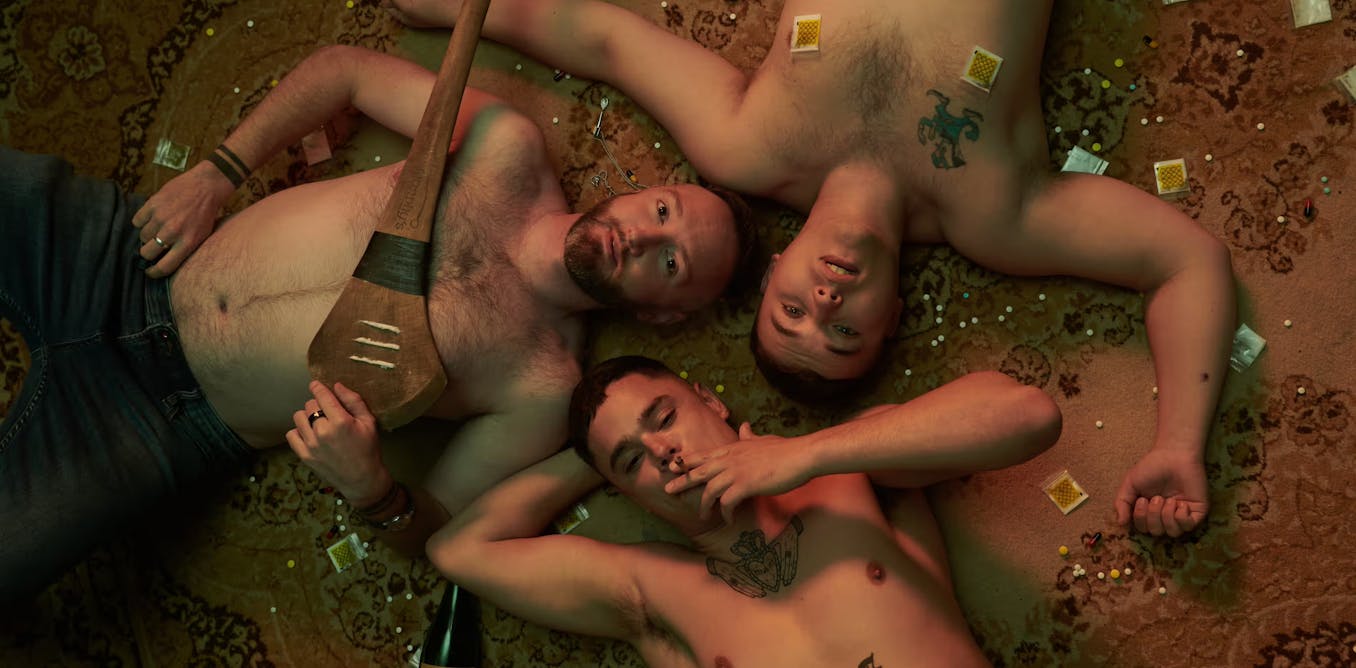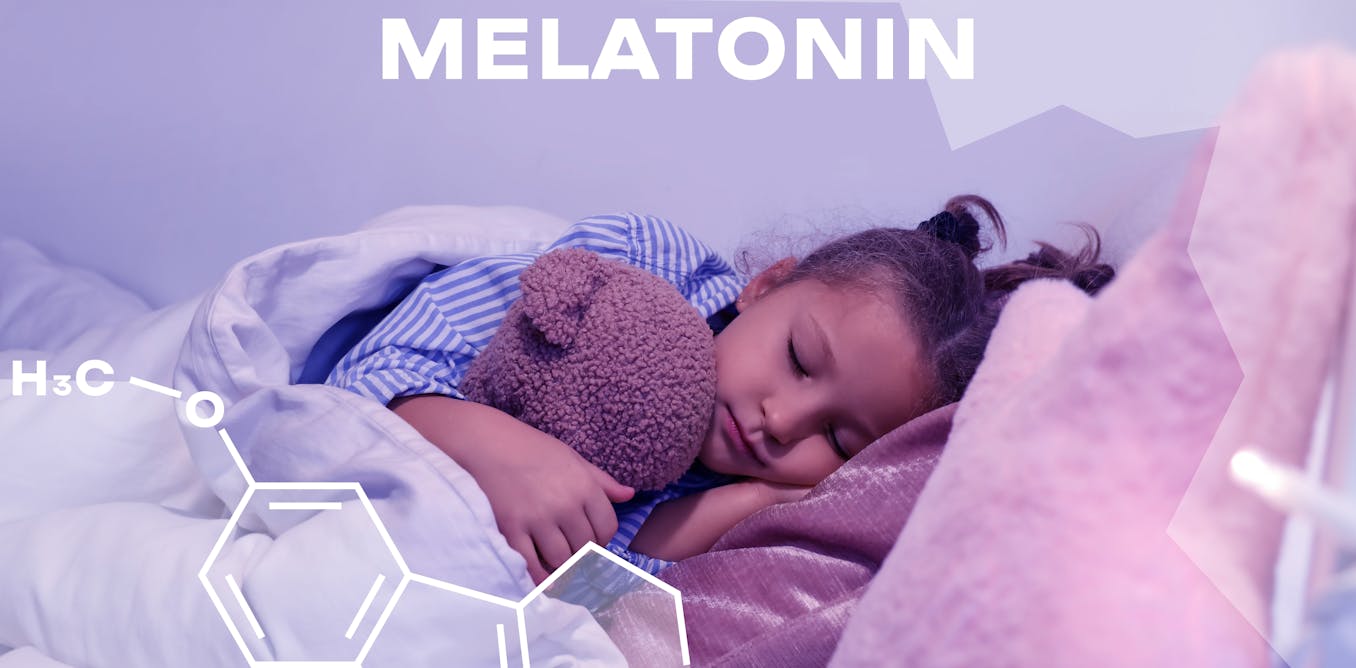On the face of it, Kneecap, the new film from writer-director Rich Peppiatt, is a fictionalised biopic of a Gaelic hip-hop group from Northern Ireland.
Merging Irish with English, satire with socially conscious lyrics, and reality with absurdity, [Kneecap’s] is a voice which comes screaming from the too-often deprived areas of the North of Ireland, speaking in a language which is too-often ignored, and it makes for suitably electrifying stuff.
So goes the bio on their website, which is a fitting description of this film which mythologises their rise to fame and won the audience award at Sundance this year.
The film stars the group’s members, Liam Óg Ó hAnnaidh (Mo Chara), Naoise Ó Cairealláin (Móglaí Bap) and JJ Ó Dochartaigh (DJ Próvaí) and follows them as their lives dramatically shift and their music transforms them from mischief-makers to the unlikely figureheads of a civil rights movement to save their mother tongue.
The film is set in 2019, around the time when the Irish-speaking community of Northern Ireland were heavily campaigning for an act that would recognise the status of the Irish language.
We see the lingering effects of growing up in the post-Troubles society of west Belfast in Northern Ireland and the impact of the Irish language on these young men and their community. Through the use of the Irish language, they find a sense of nationalist identity and pride. However, this comes with the cost of police brutality and disdain from other sections of society.
Speaking their language
Irish, also known as Gaelic, was the first language until the 19th century when it was suppressed by British rule. In 1920, it became the official language in the Republic of Ireland, but declined in what became Northern Ireland in 1921, as part of the United Kingdom.
According to the 2021 UK census, around 6000 people in Northern Ireland claim to use Irish as their main home language, with another 71,900 claiming the ability to speak the language. In December 2022, the Identity and Language (Northern Ireland) Act was passed, giving the Irish language recognition as an official language in the UK. This was a historic milestone in a long political and cultural battle to recognise Irish identity and its language in Northern Ireland.
This all sounds very serious but this is a raucous black comedy. It moves at breakneck speed from the off, barely giving you a second to catch your breath between laughs. Although, a word of warning, Kneecap is not for the easily offended.
There is enough profanity to teach even the most seasoned swearer a thing or two, not to mention the abundance of sex, drugs and well … hip-hop. Speaking of which, if you are heading to this film as a fan of the music genre, you’re in for a treat.
For those who aren’t familiar with the band’s music, it can be easily likened to the gritty early days of hip-hop, but with an Irish-language twist. Even if you haven’t heard their music before, with their energetic beats and catchy lyrics, there is no doubt that you will be bopping to the music throughout the film and you’re guaranteed to leave the theatre singing several memorable lines from songs such as C.E.A.R.T.A and Amach Anocht.
There are a couple of standout performances in this film, with notable appearances from Simone Kirby, Michael Fassbender and Josie Walker. However, it is not the seasoned actors that deserve all the credit. It is startling just how well the Kneecap trio – Ó hAnnaidh, Ó Cairealláin and Ó Dochartaigh – have taken to the big screen.
It’s clear that the three are born entertainers, drawing us into their world with an infectious enthusiasm that makes you want to rise up and fight for a language that you may not have even known existed before seeing this film.
You don’t need to know the Irish language or the background of Northern Ireland to enjoy this movie. There are, however, some nuggets in there for those who do know the history of the Troubles in Northern Ireland, with parodies of paramilitary groups and quips about the established regime.
If you are a hater of subtitles, fret not as it is a bilingual film. Although, a word of warning, you may leave the cinema with a sudden urge to download Duolingo to learn a cúpla focal (couple of words) in the Irish language.
Looking for something good? Cut through the noise with a carefully curated selection of the latest releases, live events and exhibitions, straight to your inbox every fortnight, on Fridays. Sign up here.

The post “raucous Irish-language comedy reveals lingering effects of the Troubles in west Belfast” by Aoife Ní Laoire, Mac Léinn PhD, Dublin City University was published on 08/22/2024 by theconversation.com



































Leave a Reply